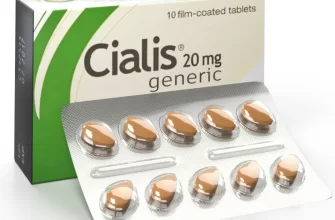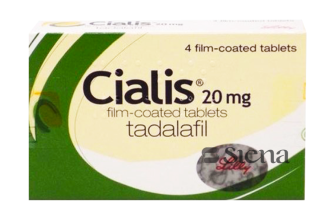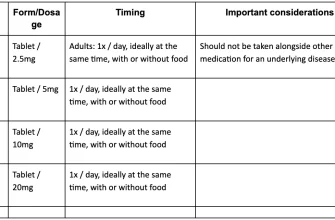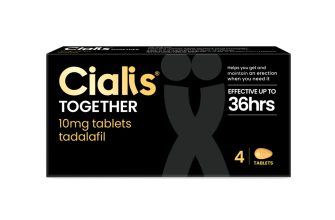Concerned about potential weight gain while taking Cialis? Let’s address this directly. While Cialis itself doesn’t directly cause significant weight gain, certain factors related to its use or underlying health conditions can contribute to weight fluctuations.
Fluid retention is one possibility. Cialis can sometimes cause increased water retention, leading to temporary weight increase. This is usually mild and resolves on its own. However, if you notice significant or persistent swelling, consult your doctor immediately.
Lifestyle changes play a more substantial role. Improved diet and regular exercise remain key for weight management, regardless of medication. Consider incorporating a balanced diet rich in fruits, vegetables, and lean protein, alongside a consistent exercise routine. Consult a nutritionist or personal trainer for personalized guidance.
Underlying health conditions should be examined. Erectile dysfunction, often treated with Cialis, can sometimes be linked to conditions like metabolic syndrome, which increases the risk of weight gain. Addressing these underlying health issues directly can impact overall weight.
Always discuss any concerns about weight changes with your doctor. They can assess your individual situation, considering your medical history, current medications, and lifestyle. They may adjust your treatment plan or recommend additional strategies for weight management.
- Cialis and Weight Gain: A Detailed Look
- Possible Contributing Factors
- Monitoring Weight Changes
- When to Consult a Doctor
- Understanding Cialis’s Mechanism of Action
- Increased cGMP and Blood Flow
- Beyond Erectile Dysfunction
- Cialis and Fluid Retention: A Potential Link to Weight Gain
- The Role of Metabolism and Cialis
- Appetite and Energy
- Metabolic Factors
- Recommendations
- Monitoring Weight Changes
- Cialis and Appetite Changes: Increased or Decreased Hunger
- Lifestyle Factors and Weight Gain While Taking Cialis
- Dietary Changes
- Tracking Progress
- Stress Management
- Potential Side Effects and Interactions
- Seeking Professional Guidance
- Reported Experiences: User Accounts and Weight Changes
- Cialis and Other Medications: Interactions Affecting Weight
- Medications that May Increase Weight
- Medications that May Decrease Weight
- Understanding Potential Interactions
- Consulting Your Doctor: Addressing Weight Concerns Related to Cialis
- Managing Weight While Using Cialis: Practical Tips and Strategies
Cialis and Weight Gain: A Detailed Look
Current research doesn’t definitively link Cialis to significant weight gain. While some users report weight fluctuations, these are often attributed to other factors.
Possible Contributing Factors
- Fluid Retention: Cialis can cause mild fluid retention, leading to temporary weight increase. This is usually minimal and resolves quickly.
- Lifestyle Changes: Improved sexual function might encourage increased physical activity, potentially leading to weight *loss*, not gain. Conversely, increased confidence may lead to changes in diet.
- Underlying Medical Conditions: Weight gain may stem from pre-existing conditions unrelated to Cialis. Consult your doctor if you experience unexplained weight changes.
- Medications: Other medications taken concurrently can contribute to weight gain. Always inform your physician of all medications you are taking.
It’s crucial to remember that individual responses to medication vary.
Monitoring Weight Changes
- Maintain a healthy diet and regular exercise routine.
- Track your weight consistently to identify any significant patterns.
- Consult your doctor if you notice unexplained weight changes, regardless of Cialis use.
- Discuss any concerns about weight gain with your physician before making any dietary or lifestyle adjustments.
When to Consult a Doctor
Seek medical advice if you experience rapid or substantial weight gain alongside other symptoms, such as:
- Swelling in your extremities
- Shortness of breath
- Chest pain
Your doctor can determine the cause of weight changes and recommend appropriate management strategies.
Understanding Cialis’s Mechanism of Action
Cialis, or tadalafil, primarily works by inhibiting a specific enzyme called phosphodiesterase-5 (PDE5). This enzyme breaks down cyclic guanosine monophosphate (cGMP), a crucial molecule for smooth muscle relaxation. By blocking PDE5, Cialis increases cGMP levels.
Increased cGMP and Blood Flow
Elevated cGMP causes the smooth muscles in blood vessels to relax, particularly in the penis. This relaxation leads to increased blood flow, facilitating erections. This mechanism is responsible for Cialis’s effectiveness in treating erectile dysfunction.
Beyond Erectile Dysfunction
Cialis’s mechanism also impacts other parts of the body. It can relax blood vessels in the lungs, improving blood flow and making it useful in treating pulmonary hypertension. The impact on blood vessels throughout the body is complex and currently a subject of ongoing research regarding potential side effects such as weight changes.
Cialis and Fluid Retention: A Potential Link to Weight Gain
Cialis, while effective for erectile dysfunction, can cause fluid retention in some men. This retention manifests as bloating and swelling, particularly in the ankles and feet. This extra fluid contributes to weight gain, although it’s not fat gain.
The mechanism isn’t fully understood, but it’s believed to be related to Cialis’s effects on blood vessels. It can widen blood vessels, potentially leading to increased blood volume and fluid accumulation.
- Monitor your weight: Regular weigh-ins can help you detect any unusual weight fluctuations.
- Observe swelling: Pay close attention to swelling in your extremities. If it’s significant or worsening, consult your doctor.
- Reduce sodium intake: A diet lower in salt can help minimize fluid retention. Sodium causes the body to hold onto water.
- Increase water intake (paradoxically): Adequate hydration surprisingly helps the body flush out excess fluid.
- Consult your doctor: Discuss any concerns about weight gain or swelling with your physician. They can assess your situation and suggest appropriate management strategies. They may also consider alternative treatments for ED if fluid retention is a significant problem.
While fluid retention is a possible side effect, it’s not experienced by everyone taking Cialis. The severity varies considerably between individuals. Remember to discuss any concerns with your healthcare provider for personalized advice.
- Keep a diary: Note any changes in your weight and swelling, along with the timing of Cialis intake. This data can be helpful for your doctor.
- Lifestyle changes: Regular exercise, a healthy diet, and sufficient rest are beneficial for overall health and can indirectly influence fluid balance.
It’s crucial to remember that this information is for educational purposes and shouldn’t replace professional medical advice. Always consult your doctor before making any decisions related to your health or medication.
The Role of Metabolism and Cialis
Cialis doesn’t directly cause significant weight gain, but it can indirectly influence metabolism. This influence is subtle and varies greatly depending on individual factors. One potential mechanism involves changes in appetite or energy levels, though studies on this are limited.
Appetite and Energy
Some users report changes in appetite after starting Cialis. These changes can be either increased or decreased, resulting in potential weight fluctuations. Similarly, Cialis might subtly affect energy levels. Increased energy could lead to increased physical activity and potential weight loss, while decreased energy might contribute to reduced activity and potential weight gain. This is highly individual and requires careful monitoring.
Metabolic Factors
Cialis’s impact on metabolism remains an area of ongoing research. While not a primary effect, subtle hormonal changes associated with Cialis use could theoretically influence metabolic rate. However, these effects are likely minor compared to other lifestyle factors like diet and exercise.
Recommendations
Maintain a healthy lifestyle regardless of medication use. Focus on balanced nutrition and regular exercise. These habits far outweigh any potential metabolic influence of Cialis. If you experience significant weight changes while using Cialis, consult your doctor to rule out other causes and discuss appropriate management strategies.
Monitoring Weight Changes
Regularly monitor your weight and consult your doctor if you notice unexpected or significant changes. They can help determine if these changes are related to Cialis or other factors, and recommend adjustments to your diet or exercise routine as needed. Accurate tracking is key to understanding your individual response.
Cialis and Appetite Changes: Increased or Decreased Hunger
Changes in appetite aren’t a common side effect of Cialis, but some users report alterations in their hunger levels. Increased appetite is more frequently mentioned than decreased appetite.
If you experience increased hunger while taking Cialis, focus on making healthy food choices. Prioritize nutrient-dense options to avoid unnecessary weight gain. Consult your doctor or a registered dietitian for personalized dietary advice.
Conversely, a decrease in appetite might indicate an interaction with other medications or an underlying health condition. Report any significant appetite changes to your physician. They can help determine the cause and recommend appropriate management strategies.
Remember, individual responses to medications vary. What one person experiences may differ significantly from another. Always consult your doctor before making any changes to your diet or medication regimen.
Lifestyle Factors and Weight Gain While Taking Cialis
Maintaining a healthy weight while taking Cialis often relies on conscious lifestyle adjustments. Regular exercise is key. Aim for at least 150 minutes of moderate-intensity aerobic activity or 75 minutes of vigorous-intensity aerobic activity per week, spread throughout the week. Incorporate strength training exercises at least two days a week, targeting all major muscle groups.
Dietary Changes
Your diet plays a significant role. Focus on a balanced diet rich in fruits, vegetables, whole grains, and lean protein. Limit processed foods, sugary drinks, and excessive saturated and unhealthy fats. Consider consulting a registered dietitian for personalized dietary guidance.
Tracking Progress
Monitor your weight and body composition regularly. This allows you to identify trends and adjust your lifestyle accordingly. Accurate tracking is crucial for effective weight management. Consider using a food journal and fitness tracker to keep records.
Stress Management
Chronic stress can contribute to weight gain. Practice stress-reducing techniques such as yoga, meditation, or deep breathing exercises. Adequate sleep is equally important; aim for 7-9 hours of quality sleep each night.
Potential Side Effects and Interactions
| Factor | Potential Impact on Weight | Recommendation |
|---|---|---|
| Fluid Retention | Can lead to temporary weight increase. | Monitor fluid intake and consult your doctor if concerned. |
| Increased Appetite | Some users report increased appetite. | Focus on mindful eating and portion control. |
| Medication Interactions | Certain medications can interact with Cialis and affect metabolism. | Discuss all medications with your doctor or pharmacist. |
Seeking Professional Guidance
If you experience significant weight gain while taking Cialis, consult your doctor. They can help determine if the weight gain is related to the medication or other factors, and offer tailored advice.
Reported Experiences: User Accounts and Weight Changes
Many users report no significant weight changes after starting Cialis. Some individuals, however, mention slight weight fluctuations, typically a few pounds. These changes aren’t consistently positive or negative, varying between users.
Water retention is a possible explanation for some reported weight increases. Cialis can affect blood vessel dilation, potentially leading to fluid retention. This is often temporary and resolves itself.
Increased appetite is another factor cited by some. While not directly caused by Cialis itself, improved mood and energy levels–potential side effects in some–may indirectly contribute to increased food consumption and subsequent weight gain.
Conversely, some users describe a decrease in appetite or changes in their metabolism, resulting in minor weight loss. These instances are less frequently reported.
It’s crucial to remember individual responses to medication vary greatly. Consult your doctor if you experience significant or concerning weight changes while taking Cialis. They can help determine the cause and recommend appropriate strategies.
Monitoring your diet and exercise remains advisable regardless of medication. Maintaining a healthy lifestyle can help mitigate any potential weight-related side effects.
Cialis and Other Medications: Interactions Affecting Weight
Always consult your doctor before combining Cialis with other medications. Certain drug interactions can influence your weight, either directly or indirectly, through changes in appetite or metabolism.
Medications that May Increase Weight
Some medications, when taken alongside Cialis, may contribute to weight gain. These include certain antidepressants (like some SSRIs and SNRIs), antipsychotics, and some diabetes medications. Weight changes are often a side effect of these drugs, irrespective of Cialis use, but the combined effect warrants careful monitoring.
Medications that May Decrease Weight
Conversely, some medications might lead to weight loss when used with Cialis. Certain stimulants and some anti-epileptic drugs fall into this category. However, unintended weight loss can be a sign of medication side effects, requiring a doctor’s attention.
Understanding Potential Interactions
| Medication Class | Potential Weight Impact | Important Note |
|---|---|---|
| Antidepressants (SSRIs, SNRIs) | May increase weight | Monitor weight and discuss any concerns with your doctor. |
| Antipsychotics | May increase weight | Regular weight checks are recommended. |
| Diabetes Medications (some) | May increase or decrease weight depending on the specific drug. | Your doctor should closely monitor blood sugar and weight. |
| Stimulants | May decrease weight | Report any significant weight loss to your doctor. |
| Anti-epileptic Drugs (some) | May decrease weight | Weight changes should be discussed with your doctor. |
This table provides a general overview; individual reactions vary significantly. Your personal health history and other medications you are taking heavily influence the outcome. Remember, this information is not a substitute for professional medical advice. Always discuss potential drug interactions and weight changes with your physician or pharmacist.
Consulting Your Doctor: Addressing Weight Concerns Related to Cialis
Schedule a consultation with your doctor to discuss any weight changes you’ve experienced while taking Cialis. Openly share your concerns and provide details about your weight fluctuation, including the amount of weight gained and the timeframe.
Your doctor will conduct a thorough review of your medical history and current medications. They’ll assess your overall health, considering factors like diet, exercise, and other potential contributing factors to weight gain.
- Be prepared to answer questions about your lifestyle: How often do you exercise? What is your typical daily diet?
- Bring a record of your weight changes – a simple chart or a list of measurements will be helpful.
- Mention any other symptoms you are experiencing, even seemingly unrelated ones, as they might offer clues.
Based on this assessment, your doctor might suggest several approaches:
- Lifestyle adjustments: Recommendations for diet and exercise modifications to promote weight management.
- Alternative medication: If Cialis is deemed a contributing factor, your doctor may discuss alternative treatment options for erectile dysfunction.
- Further testing: Additional medical tests might be necessary to rule out other underlying medical conditions causing weight gain.
- Monitoring: Regular check-ups to track your weight and overall health while on Cialis or an alternative treatment.
Remember, open communication with your doctor is crucial. Don’t hesitate to ask questions and express your concerns; they are there to support you in finding the best solution for your individual needs.
Managing Weight While Using Cialis: Practical Tips and Strategies
Prioritize a balanced diet rich in fruits, vegetables, lean protein, and whole grains. Limit processed foods, sugary drinks, and unhealthy fats. This nutritional foundation supports overall health and helps manage weight.
Increase your physical activity. Aim for at least 150 minutes of moderate-intensity aerobic exercise or 75 minutes of vigorous-intensity aerobic exercise per week, along with muscle-strengthening activities twice a week. Walking, swimming, cycling, and strength training are all excellent choices.
Stay hydrated by drinking plenty of water throughout the day. Water helps you feel full, aids digestion, and supports overall bodily functions. Avoid sugary drinks; they add empty calories.
Monitor your calorie intake. Use a food diary or app to track your eating habits and identify areas for improvement. This conscious approach facilitates better control.
Consider consulting a registered dietitian or a certified personal trainer. They can provide personalized guidance based on your individual needs and health status, including any potential interactions with Cialis.
Manage stress levels through relaxation techniques like yoga, meditation, or deep breathing exercises. Stress can impact appetite and weight management.
Ensure adequate sleep. Aim for 7-9 hours of quality sleep per night. Sleep deprivation can disrupt hormones that regulate appetite and metabolism.
Remember to discuss any weight management strategies with your doctor, especially if you are taking Cialis or other medications. They can help you develop a safe and effective plan.
Regular check-ups with your doctor are crucial for monitoring your overall health and addressing any concerns related to Cialis use and weight management.









